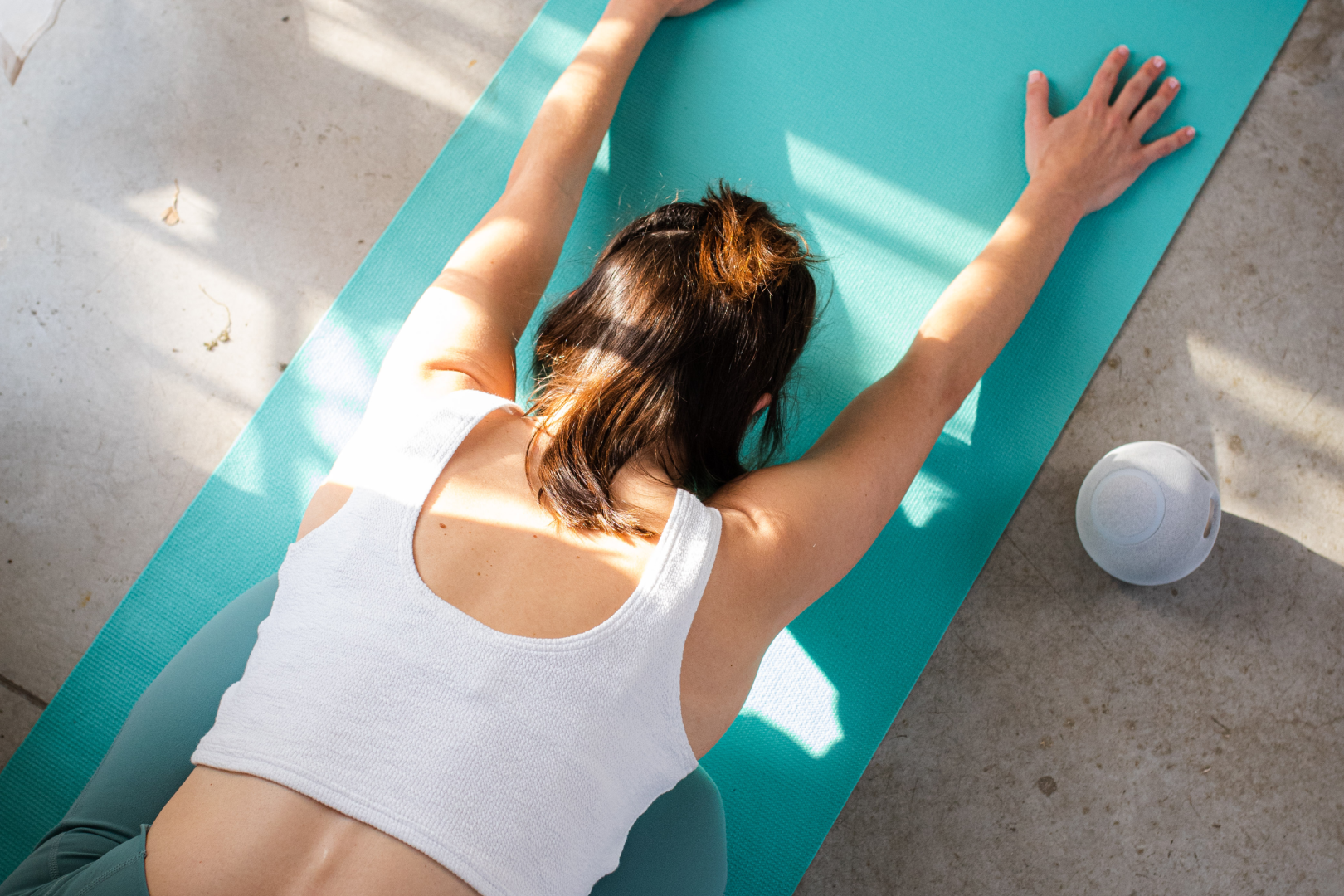An evidence-based approach to wellbeing can help you get results faster. That’s why we’ve uncovered lifestyle changes that are studied, tested, proven…and more likely to improve your quality of life.
Whether you’re experiencing stress-inducing thoughts, body imbalances, or just simply feeling more sluggish than usual, our science-backed recommendations can get your health back on track.
Ready to dive in and see how science helps in life? Let’s get started.
5 Daily Habits That Help You Reap the Benefits of Science
When they’re scientifically proven, small daily habits can add up to substantial health benefits over time. Here are 5 simple lifestyle changes that can help you reap the benefits of science:
Spend at least 120 minutes a week in greenspace
Nature’s prescription: spend more time in greenery! Walking in greenspace (forests, parks, or any area that is mostly vegetation) makes you less stressed, and rejuvenates your attention and focus.
According to studies, a 90-minute walk in the forest leads to a decrease in ruminating thoughts that can cause anxiety and depression. If 90 minutes a day feels out of reach, start with the minimum – 120 minutes per week – and observe the difference it makes in your well-being.
Take a break from sitting every 30 minutes
Too much sitting isn’t great for your body’s metabolic system. In fact, sitting too much can increase risk of obesity, high blood pressure, high blood sugar, and unhealthy cholesterol levels.
Studies suggest aiming for less than 4 hours a day spent sitting and taking a break from sitting every 30 minutes. To help you track your progress, you can use the free “Sitting Time Calculator.”
Go without your smartphone for at least 3 hours a day
Studies show that smartphones are a major brain drain. Whether you’re using it or not, just having your phone around occupies limited mindspace and reduces your cognitive capacity. Ultimately, this leaves your brain less room to focus on and complete tasks throughout the day.
To let your brain breathe, give yourself at least 3-4 hours of phone-free time per day. And when you are using your devices, limit social media use to 30 minutes a day to help decrease anxiety, loneliness, and depression.
Spend time with uplifting people.
You’ve probably heard the saying: You are the average of those you spend the most time with. Well, it turns out, emotions are indeed contagious, making it a scientifically proven claim.
When you interact with another person, an ‘emotional transfer’ can happen, resulting in the synchronization of emotional states and behaviors. Spend more time with those who are positive, emotionally healthy, and optimistic, so you can share those qualities, too.
Break up with TV. (Or at least limit it to 2 hours per day.)
On average, Americans spend 1825 hours per year watching television - that’s 20% of the entire year! Too much television can put you at increased risk of type 2 diabetes, cardiovascular disease, and all-cause mortality. That begs the question: How much is too much? One study followed almost 500,000 participants to find that limiting television to less than 2 hours per day reduced most of the unwanted side effects.
If 5 new habits feel too overwhelming, just start with one to begin taking control of your health. And for those who are ready for more? Keep reading as we discuss Eastern-rooted daily practices with more proven health benefits.
According to Science, Yoga Improves Your Quality of Life
While many associate yoga with exercise, the physical postures (asanas) are only a small part of it. Patanjali Yoga Sutras, the authoritative text on yoga, describes how yoga can rejuvenate your wellbeing through yogic wisdom, mindfulness, breathing techniques, meditation, asanas, and lifestyle and diet changes. A daily practice of yoga has been proven to:
- Increase body strength and flexibility.
- Shift the nervous system from ‘fight-or-flight’ to ‘rest and digest.’
- Improve respiratory and cardiovascular functions.
- Help with addictions, including recovery and treatment.
- Decrease stress, anxiety, and depression.
- Decrease chronic pain.
- Reduce insomnia and improve sleep patterns.
- Slow down cellular aging.
Yoga is an entire lifestyle rather than a one-time activity - and with daily practice, it can help you maintain optimal health.
Meditation & Science: Proven Ways to Calm Your Mind
Meditation encompasses techniques that quiet the mind by anchoring it to the present moment. Mantras, guided meditations, and mindfulness-based practices are all examples of meditation that unclutter and calm the mind to improve your health.
Here are the benefits of meditation, according to science:
- Better regulation of inflammation, glucose metabolism, and in turn, a decrease in blood pressure in those who experience hypertension.
- Reduction in cravings, negative affectivity, and post-traumatic symptoms for those suffering from substance abuse and addiction.
- Effective treatment of anxiety disorders.
- Alleviates loneliness.
- Improvements in depression, anxiety, and physical pain.
- Decreases overthinking and worry.
Science-Based Breathing Techniques
The mind and breath are interconnected. Have you ever noticed what your breathing is like when you’re calm? It’s steady, slow, and deep. And when you’re stressed, scared, or uncomfortable? It speeds up and becomes shallow. Knowing this, we can use the breath to tune the mind to drop the worries and embrace calm Here are a two science-based breathing techniques you can try out:
Diaphragmatic Breathing
Diaphragmatic Breathing is a very simple, yet effective breathing technique that reduces anxiety, depression, and stress. It’s also proven to relieve emotional exhaustion that’s caused by employee burnout.
Instructions on Diaphragmatic Breathing:
As you inhale, slowly expand the belly like a balloon. Then, as you exhale, slowly contract the belly as you push out all of the air in your lungs. Repeat for 5-10 minutes. For more detailed instructions, check out this video below: [embed]https://www.youtube.com/watch?v=Mg2ar-7_HfA[/embed]
Alternate Nostril Breathing
Science has shown that 15 minutes of Alternate Nostril Breathing can relieve anxiety and its symptoms in acute stressful situations like public speaking.
Instructions on Alternate Nostril Breathing:
Inhale through the left nostril (apply pressure with the fingers to close off the right nostril). Then, exhale out the right nostril (closing off the left nostril). Repeat for 10-15 minutes. For more detailed instructions, check out this video below: [embed]https://www.youtube.com/watch?v=Xbbr6Udg1UA[/embed]
The Reflect Orb: How Science Helps In Life
Creating lifestyle changes can be overwhelming, especially if you’re implementing many changes at the same time. If that feels like too much, choose one habit and monitor the results with the Reflect Orb.
By using biofeedback to monitor stress and anxiety levels, Reflect brings the benefits of science into your home. You can use the Orb to assess your new habit and whether it's actually working to decrease your stress. And if it’s not? Switch it up until something sticks. With Reflect’s science-based approach, it’s never been easier to understand your body.





